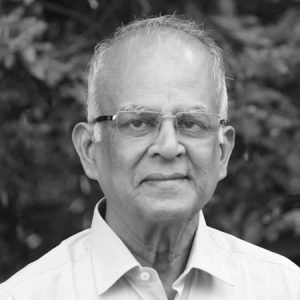Workshop on Dissertation Expectations and Quality Criteria: Is it Enough to have a Good Dissertation? 12 Jan 2016
Update: The list of selected students appears at the end.
* * *
The DST-CPR is pleased to announce a one-day Workshop entitled Dissertation Expectations and Quality Criteria: Is it Enough to have a Good Dissertation? to be held on 12 January 2016 (Tuesday). See below for a brief write-up about the Workshop.
The Workshop will be conducted by Prof. Maresi Nerad, the founding director of the Center for Innovation and Research in Graduate Education (CIRGE) and Professor in the Leadership in Higher Education Program, College of Education, at the University of Washington, Seattle, USA. [Please see her website for more details]. Prof. Nerad will be at DST-CPR as a Visiting Professor during December 2015 – January 2016. She has presented this type of Workshops in Germany (in many universities), the US, South Africa, and the Middle East.
Here’s a brief description of the Workshop:
Dissertation Expectations and Quality Criteria: Is it Enough to have a Good Dissertation?
How do we know when a dissertation is outstanding, passing, or not satisfying?
Much discussion worldwide has been about what competencies (knowledge, skills, and experiences) doctorate candidates should develop, how they acquire them, and whether the next generation of researchers is appropriately prepared for careers inside and outside academe (see Lovitts 2007). Little attention has been given to the role of the dissertation and the criteria for its quality. This workshop aims at highlighting the expectations and quality criteria by doctoral candidates and their professors on what is an original piece of research.
This workshop will focus first on quality criteria identified by the participants, second on those identified in a recent study by professors, and third it will end by asking whether producing a good dissertation is enough these days and what other qualifications are indeed needed.
Who should attend: PhD scholars who have completed at least 2 years of doctoral studies, who know what they will do in their dissertation.
Structure of the Workshop: It will be a very interactive workshop, and participation is limited to just 20. With an initial input from the Instructor, all other activities are group work, reflections, brainstorming, and role play.
Selection will be made to ensure a diversity of backgrounds, fields of study, and types of institutions.
There is no registration fee. Also, travel expenses will be reimbursed at the applicable rates. Limited accommodation is available for outstation participants.
Registration: Interested PhD scholars may file an application by filling all the details in this form. If you are selected, please bring along a letter from your advisor endorsing your participation in the Workshop.
Last date for filing the application: 5 January 2016.
For further enquiries, please send an e-mail to: chairman@apc.iisc.ernet.in
* * *
Update: Here is the First List of selected candidates (Additions to this list will be made later):
- Nimisha Agarwal [*], National Institute of Advanced Studies, Natural and Engineering Sciences
- Ajith Ashokan [*], IISER-Bhopal, Biological Sciences
- Aniket Basu Roy [*], IISc-Bangalore, Computer Science and Automation
- Sudarshan P Bhat [*], IISc, Ecological Sciences
- Jagriti Gangopadhyay [*], IIT-Gandhinagar, Humanities and Social Sciences
- V Vijay Girish K, IISc-Bangalore, Electrical Engineering
- Anupriya Gogna, IIIT-Delhi, Electronics and Communication Engineering
- Javed GS [*], IISc-Bangalore, Electrical Communication Engineering
- Smita Kamble [*], IISc-Bangalore, Materials Engineering
- Abhiruk Lahiri [*], IISc-Bangalore, Computer Science and Automation
- Mayamol T R [*], Academy of Medical sciences, Community Medicine
- Kanchan Mishra [*], TIFR-Mumbai, Homi Bhabha centre for Science Education
- Aishwarya Narayan [*], IIT-Bombay, Biosciences and Bioengineering
- Sudhir Pujahari [*], IISER-Pune, Mathematics
- Arijit Roy [*], IIT-Bombay, Metallurgical Engineering and Materials Science
- Ankur Shringi [*], IISc-Bangalore, Ecological Sciences
- Vivek Srinivas [*], IIT-Bombay, Bioscience and Bioengineering
- Gaurav Tikas [*], IISc-Bangalore, Management Studies
- Amit Tripathi, IISc-Bangalore, Aerospace Engineering
- Asheesh Navneet [*], Institute for Social and Economic Change (Bangalore), Center for Political Institutions, Governance and Development
- Umesh Pratap Pandey [*], IISc-Bangalore, Inorganic and Physical Chemistry
Note: [*] indicates confirmed participants.














![DST-CPR Discussion Series on Science for Policy & Policy for Science [Open Access Policy], 7 Jun 2017 DST-CPR Discussion Series on Science for Policy & Policy for Science [Open Access Policy], 7 Jun 2017](https://dstcpriisc.org/iisc/wp-content/uploads/2018/08/IISc-2016-067-720x300.jpg)
